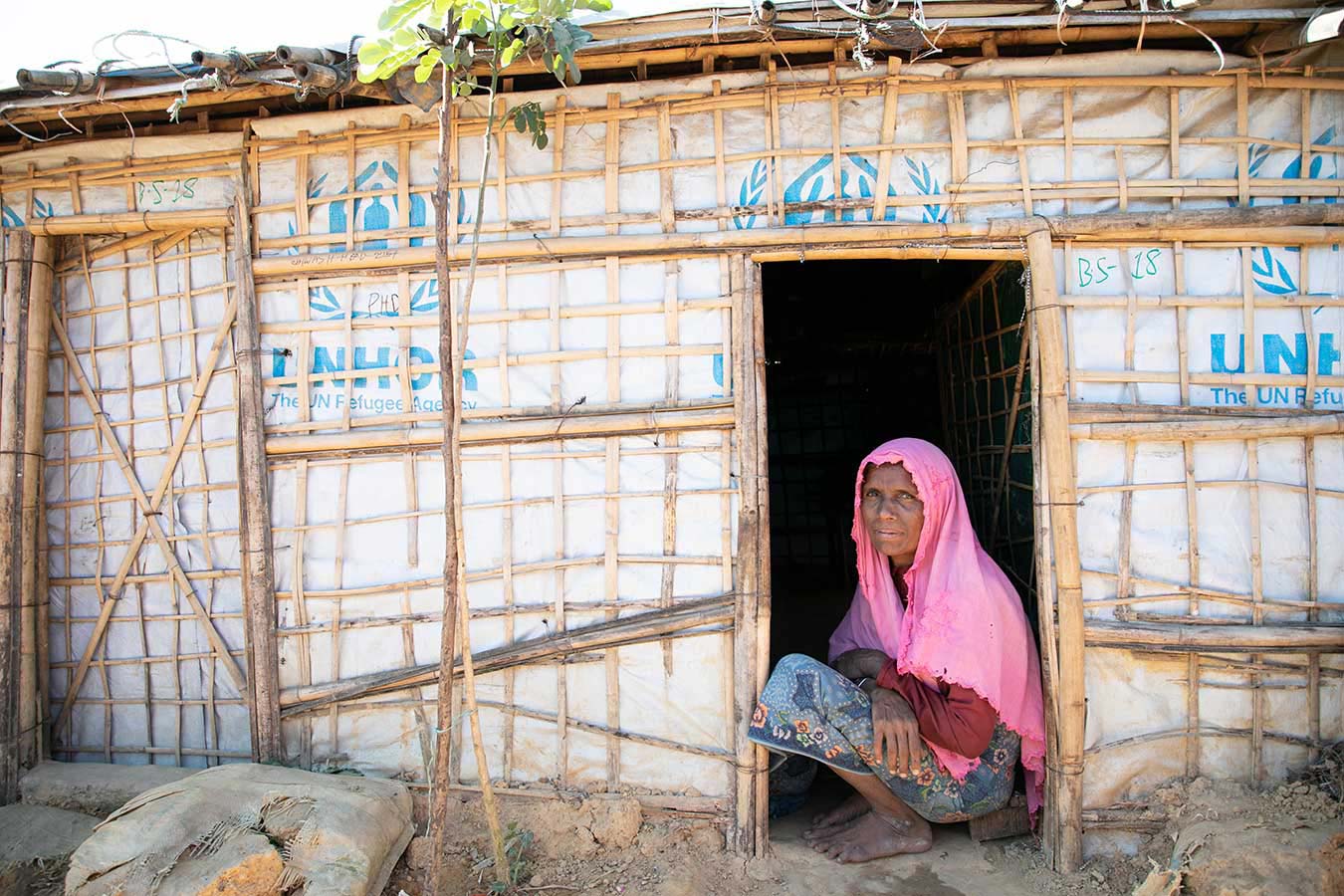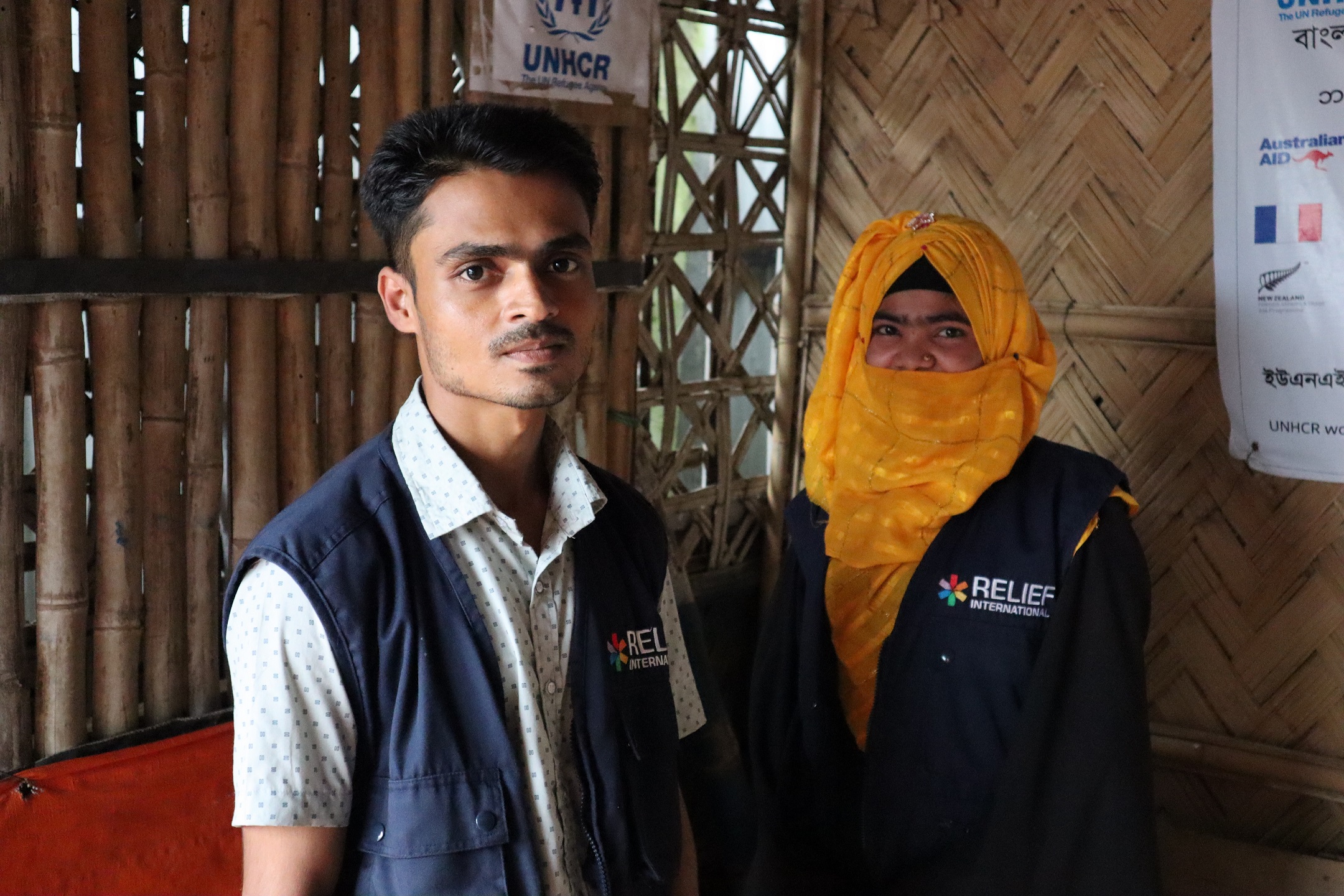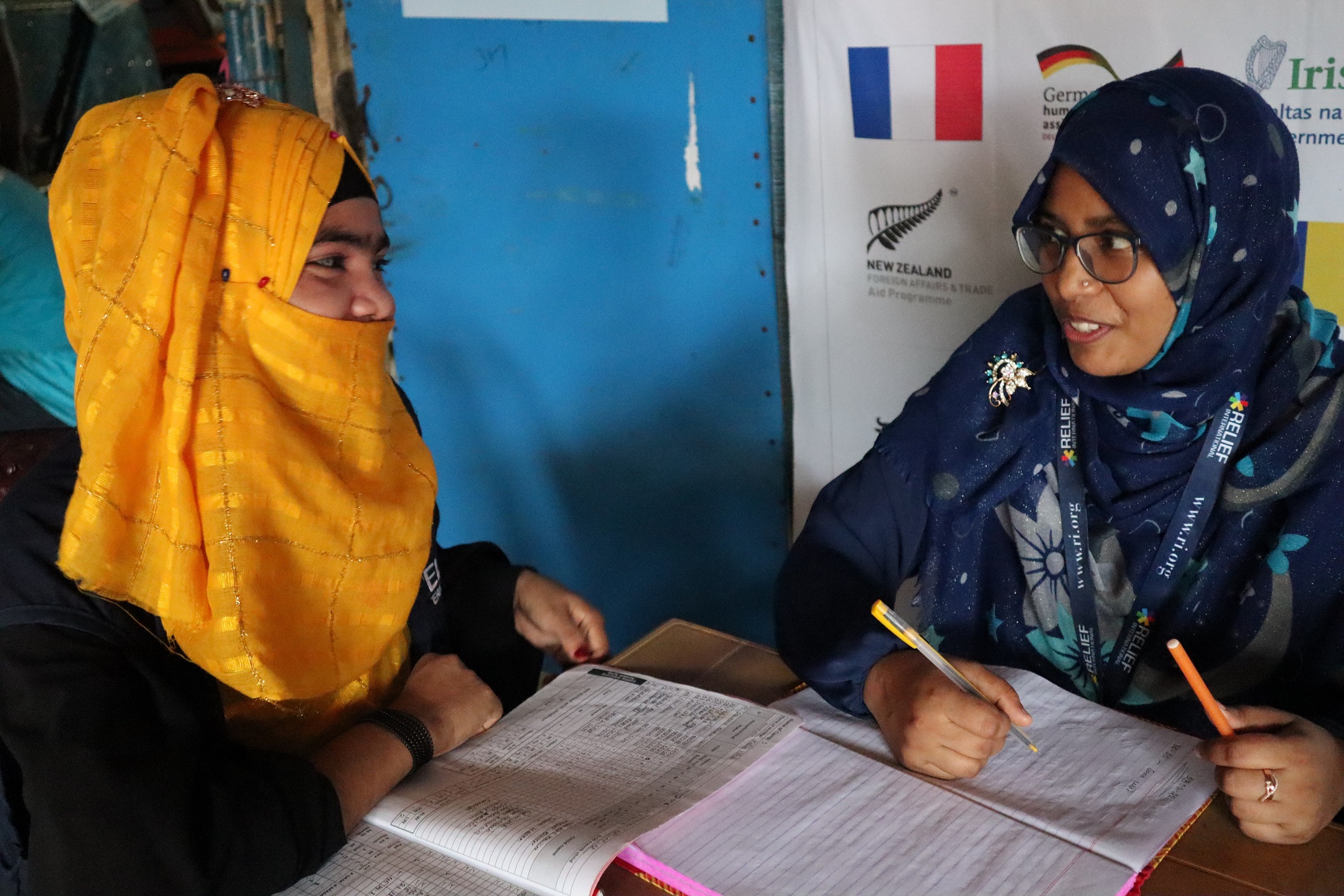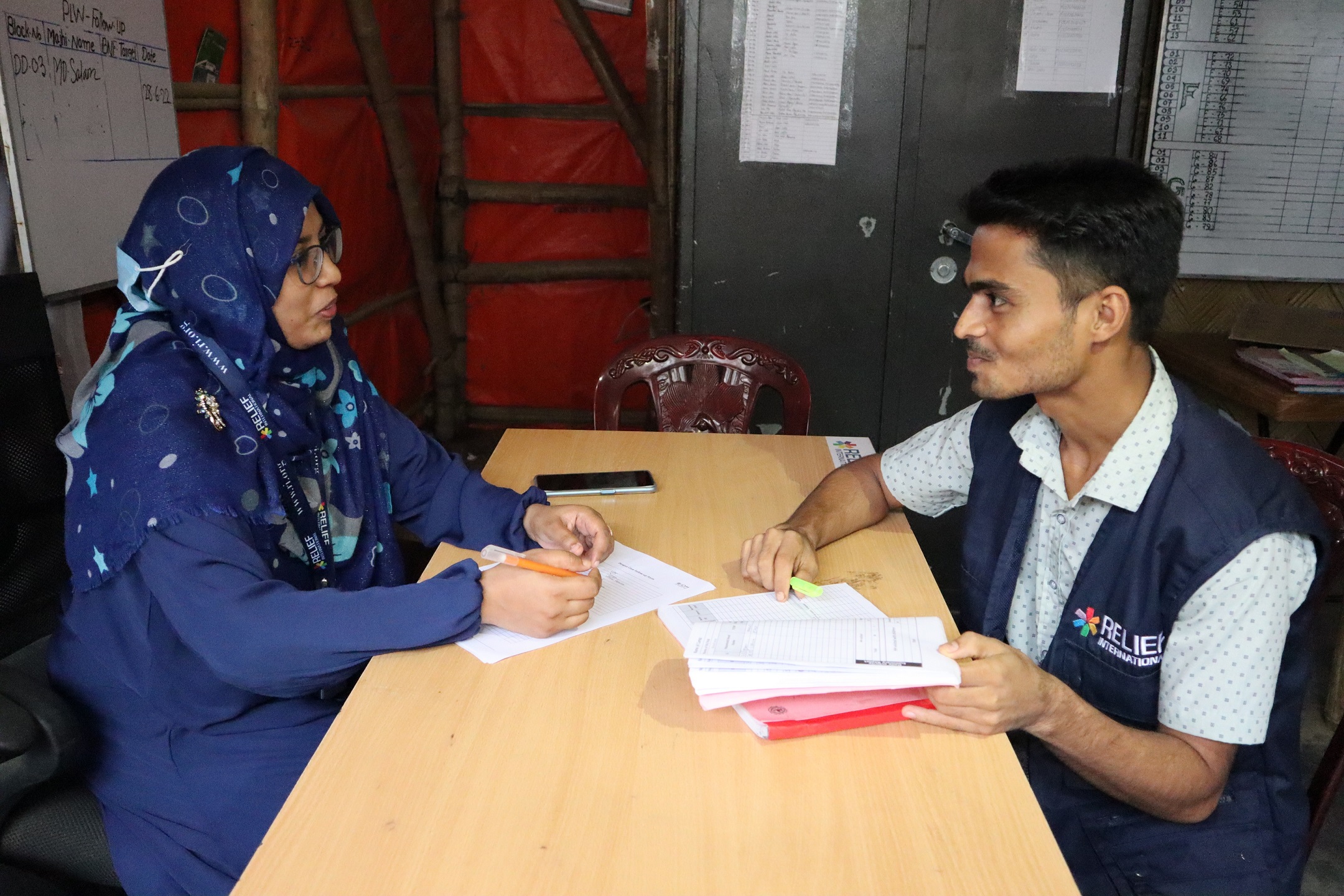“I am a volunteer and I love this role because it helps me stay in touch with the community,” says Asia. “I visit 15 households per day on average.”
In her role as a nutrition volunteer Asia regularly visit households in her community to conduct screenings for signs of malnourishment in children under 5 and pregnant and lactating women; referring them to the nearest nutrition facilities and raising awareness about key nutrition and hygiene related topics so that their families can live healthier lives.
“I am always welcomed into households. During the visits I screen children and women for malnutrition using the MUAC measurement [and]… and do referrals as needed.”
For Mohammed, who has the same role as Asia, this means spending the majority of each day going door-to-door to talk to families.
“I start at 8.30 am everyday when I go to the RI nutrition facility and help coordinate tasks with my colleagues.”
By 9 am he is on his way out to meet with families in the community.
“I go on door-to-door visits and do screenings and awareness raising on health and nutrition issues with the families I meet with.”
RI first began using community outreach to help fight malnutrition in Rohingya camps in April 2022. Asia and Mohammed are 2 of 86 volunteers that go out and work with families in their community with the goal of strengthening health and nutrition.
Between April and July 2022, these volunteers screened over 24,000 children and 3,500 pregnant and lactating women for signs of malnutrition, encouraging families to take part in our programs to prevent and treat malnutrition. These programs involve providing immediate treatment for malnutrition, raising awareness on good nutrition and hygiene practices, and giving supplementary food when needed.
“At 2 pm, I come back to the facility and report the data I have collected during the household visits, before I go home at 3.30 pm,” says Mohammed.
While door-to-door visits are usually focused on nutrition, they are also an opportunity for Community Nutrition Volunteers to provide hygiene and additional health related advice on topics such as sexual and reproductive health, breastfeeding, ante-natal and post-natal care, immunizations, non-communicable diseases, and COVID-19 prevention and treatment.
After they are finished for the day, Asia and Mohammed head home to their respective families.
“I am usually very busy because I take care of my whole family,” says Asia. “I am the only one providing an income. I work, I buy food and I cook food for everyone.”
Both Asia and Mohammed make sure to use the training and information they have received in their CNV roles, at home as well.
“Thanks to my role as a Community Nutrition Volunteer, I have learnt nutrition and hygiene concepts that I apply in my house and with my family members,” says Asia. “This why everybody in my family is in good health!”
Mohammed adds, “I apply what I have learnt in my daily life with my wife and with my daughter. My wife is currently pregnant, and my daughter is under 5 so my family are also beneficiaries of RI nutrition programs, and we are very thankful for this.”
Most of RI’s volunteers in the nutrition program are refugees; men and women, who have been forced to flee their home to escape conflict and persecution.
Now they give their time and effort to help improve the communities they live in, while helping to support their families as well.

RI's Work in Bangladesh
In the wake of the Rohingya crisis in 2017, RI has expanded our programs in Bangladesh to meet the most urgent needs of refugees and surrounding Bangladeshi host communities.


